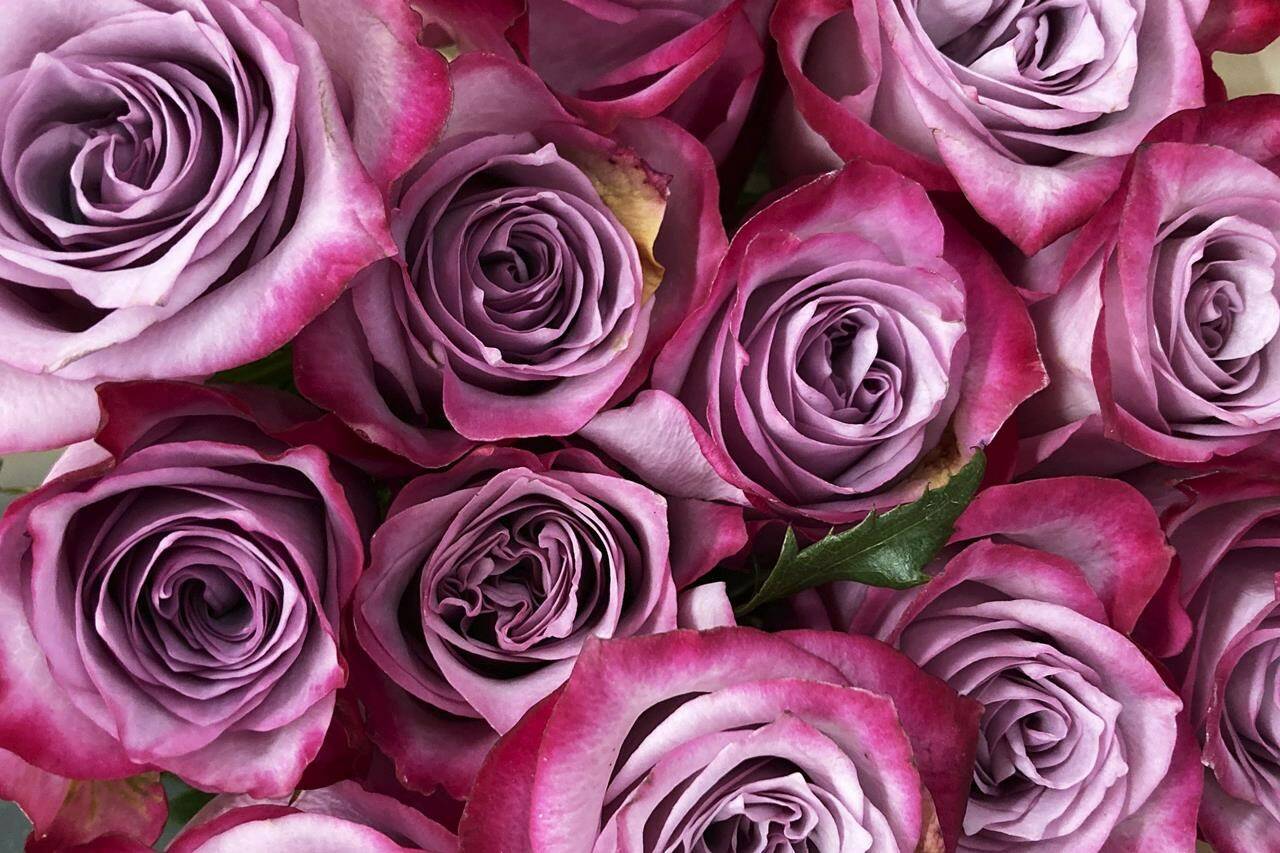It was stubbornness that led a family farm on Vancouver Island to keep growing roses when competitors left the industry or shifted production to marijuana years ago.
Now, Kristen Bulk says international flower shortages combined with the Valentine’s Day crunch is creating higher demand for local roses from Eurosa Farms, which bills itself as the only year-round standard cut rose grower in Canada.
“It’s all hands on deck, so to speak. We’re definitely moving as quickly as possible to get our product out to everyone,” said Bulk, who works in accounting for Eurosa in Brentwood Bay, B.C.
Supply chain issues and fluctuations in demand during the COVID-19 pandemic have seen those in the flower business strap in for a roller-coaster ride like so many other industries since 2020. Between bans on weddings and the difficulty getting space on cargo planes before flowers wilt, procuring flowers and calculating demand has been a moving target for retailers and wholesalers.
Vince Van Randen, a cut-flower purchaser for West Coast Floral in Surrey, said British Columbia has been somewhat protected thanks to local growers and a major flower auction site in Burnaby but the province isn’t unaffected.
Imported flowers have dramatically increased in price and it’s been difficult to secure supply amid limited cargo flights and issues with truckers crossing the border, he said.
Demand has pushed the cost of local flowers up about 30 per cent too, he added.
“Overall, it’s been, I wouldn’t say difficult, but it’s been different from what we’ve been used to so far in accessing the flowers to sell,” he said, adding other trends like people purchasing houseplants early in the pandemic also shifted demand.
The wholesale distribution company, which also has a small retail centre and greenhouses, has pursued a mixed strategy of pre-booking orders and replacing international suppliers with local ones, Van Randen said.
Disasters have added another challenge, with flooded farms on the Sumas Prairie making tulips particularly difficult to come by, he added. Darker, damper fall weather also didn’t help.
Roses, which grow better in southern climates, have traditionally been cheaper to import but many California growers switched production to crops like vegetables when confronted with an uncertain future early in the pandemic, he said.
In other parts of the world like Ecuador, Van Randen said, producers lined up at the airport to get flowers on a cargo plane but after waiting five days in one instance, the flowers wilted.
Pre-booking orders with suppliers has become a must in order to ensure the company has flowers for its clients, he said.
“It’s changed the way we do things, definitely,” he said. “It’s changed our industry dramatically in the last two years.”
Vivian Liu, owner and head florist at Arbutus Florist in Vancouver, said while prices are up, she hasn’t noticed a flower shortage beyond exotics like ranunculus and anemones. The shop’s pre-booking of roses came through this Valentine’s Day, she said.
The cost of roses almost doubled for Valentine’s Day, but she said the shop only raised its prices 25 per cent.
More challenging was Christmas, when flooding and mudslides cut off all major highway links to Metro Vancouver, she said. It meant both flowers and hardware like vases couldn’t make it to the shop.
– Amy Smart, The Canadian Press

